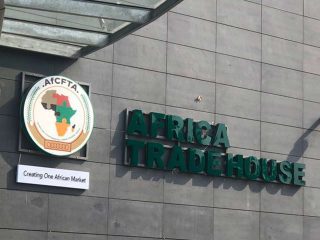U.S. President Joe Biden is buying into a new free trade zone in Africa as Trans-Pacific Partnership looks as distant as ever.
At a recent hearing on Capitol Hill, experts urged the White House not to miss out on the opportunity, and to back and engage with the new trade bloc.
The African Continental Free Trade Area (AfCFTA), which took effect in January, is the largest such zone by number of countries since the creation of the World Trade Organization.
Fifty-four of the African Union’s 55 members — Eritrea excluded — have signed on to the idea of creating a single market on the continent.
“The future of African markets, it will be shaped by the cellphone,” Aubrey Hruby, a senior fellow at the Atlantic Council, told members of the Senate Foreign Relations subcommittee on Africa and global health policy.
“This is the mirror of the world of hundreds of millions of young Africans,” she said, waving her smartphone. “And the question is, who is going to shape how this is used, what’s on it, the content of the future? And for me, that is what we should be thinking about.”
Florizelle Liser, president and CEO of the Corporate Council on Africa in Washington said: “In the next 10 to 20 years, Africa’s importance to world markets will grow significantly in many of the sectors that drive American prosperity, including ICT [information and communications technology], energy, finance, infrastructure and health.”
“The COVID pandemic has accelerated existing African efforts to change the continent’s narrative,” she said. “As they look to build back better, African countries are doubling down on integrating their economies, accelerating digitalization efforts, better linking up with shifting global supply chains.”
Landry Signe, a professor at Thunderbird School of Global Management in Arizona and a senior fellow at the Brookings Institution, noted that Africa is expected to be home to 40% of the world’s population by 2100. The AfCFTA offers a “new regional momentum” that the U.S. can build on, he said.




